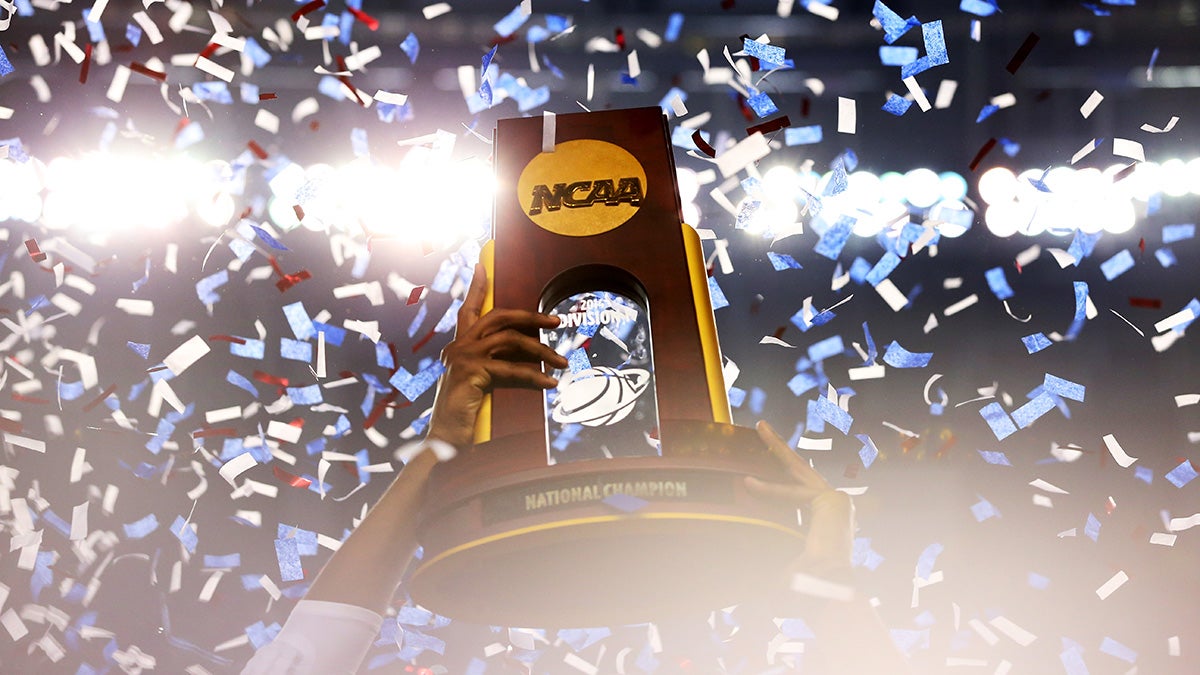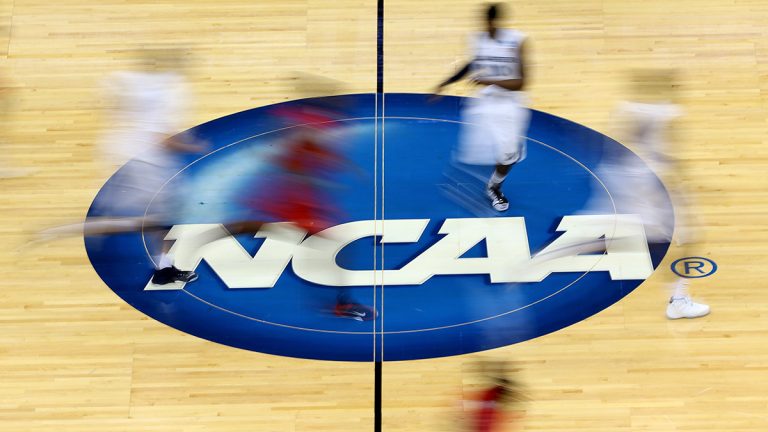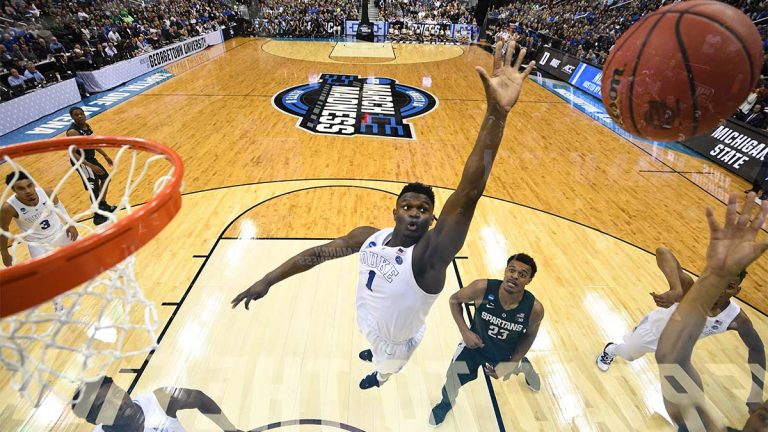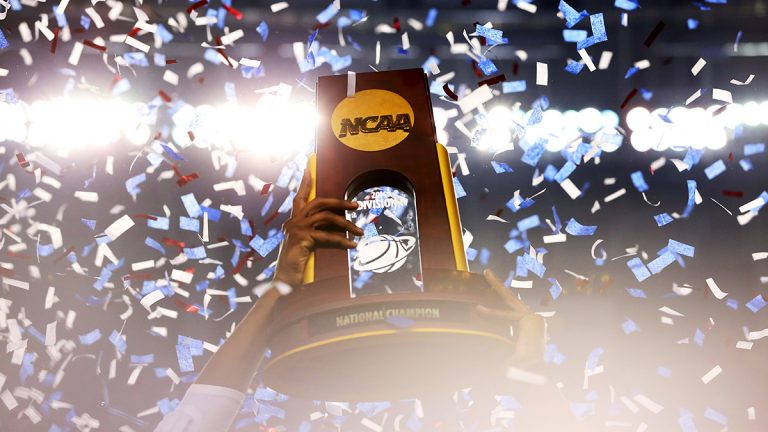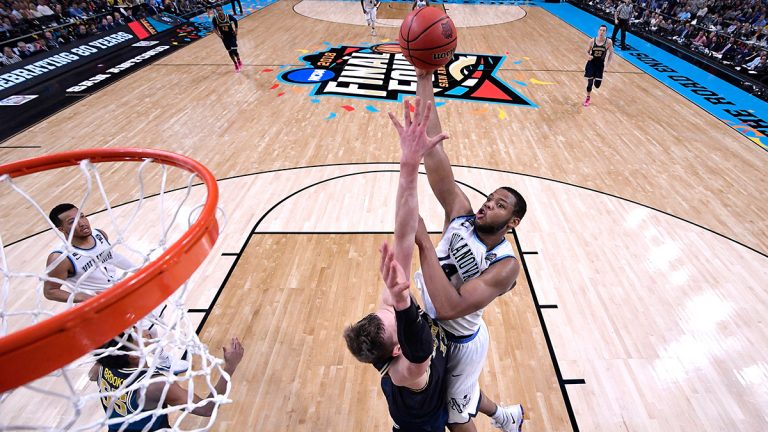Opinion: 'Devil' will be in the details of NCAA benefit plan
With an impeachment inquiry dominating the news on one side of the country and wildfires engulfing a state on the other side, perhaps the NCAA was grateful to make a major announcement Tuesday that was slipped down the priority list in a warp-speed news cycle.
A unanimous vote by the NCAA’s Board of Governors was a small step for student-athletes’ monetary rights but far from a giant leap for realistic rule changes. As knee-jerk news gets disseminated these days, there was a catch-all fake news headline. To paraphrase it: The NCAA will allow a student-athlete to make money off his or her name, image, likeness — or NIL.
As happens all too frequently in the media’s insatiable rush for clicks, the first takes were the worst takes. The NCAA parses its words as carefully as a bomb disposal expert clips wires. It’s advisable to not only read between the lines but also, maybe, read the words in the lines.
The NCAA’s 429-word news release can be boiled down to the opening paragraph: “the NCAA’s top governing board voted unanimously to permit students participating in athletics the opportunity to benefit from the use of their name, image and likeness in a manner consistent with the collegiate model.” (Italics added.)
Let’s parse the parsing.
Opportunity. The use of that word and its meaning appears to suggest that the NCAA considers a student-athlete’s NIL to be a privilege and not a right. If so, that’s appalling.
Benefit. Ah, yes. A favorite word in the NCAA Manual, a 400-page rule book written by lawyers for lawyers. Typically, it’s an “extra benefit,” and that’s considered a rules violation. “Benefit” was used instead of “profit,” a word that hints at dirty, filthy money.
Manner consistent with the collegiate model. Considering that model is in disrepair, if not broken, this is a deal-breaker.
Allowing student-athletes their inherent right to profit from their talents in no way fits the collegiate model, which is plantation-based and, at best, treats student-athletes like indentured servants. An athlete is limited because of NCAA rules. A student on a music scholarship can busker for tips at a local bar. A student on an art scholarship can sell paintings outside the student union. Yet student-athletes are unable to take advantage of their often-fleeting fame.
The NCAA, as we’re often reminded, is made up of its member schools. The schools, we’re told over and over, make the rules. The NCAA tries to enforce the rules. School A doesn’t trust School B to play fair; hence, a rule book that treats jaywalking like a felony and a felony like jaywalking.
What was the organization’s bedrock — amateur athletics — in the last century is undergoing a tectonic-plate shift in this century. The quakes have come from outside influencers — federal courts and state legislatures.
Five years ago, the NCAA began a four-year fight that it eventually lost in the U.S. Ninth Circuit Court and was forced to add cost-of-attendance money to athletic scholarships. The extra money ranged from $2,000 to $5,000 per scholarship at Power Five conference schools, and the amount was set by the schools.
Earlier this year, California passed the Fair Pay to Play Act that goes into effect in 2023. It says that college athletes in the state of California can’t lose their NCAA eligibility if they receive NIL compensation. It also allows college athletes to hire an expert (agent) to make NIL deals.
A dozen states are following suit, which means the NCAA can’t focus solely on opposing one rebel state. Plus, there are members of Congress planning federal legislation. How bipartisan is this movement? The California bill was signed into law by Gavin Newsom, a decidedly liberal governor. Florida Gov. Ron DeSantis, a conservative Republican, wants his state to pass similar legislation.
The NCAA can feel the ill winds blowing. In May, the Board of Governors appointed the Federal and State Legislation Working Group, a 19-member group charged with studying the issues being raised by state and federal legislation.
(As Dana O’Neil of The Athletic tweeted Tuesday: “I do believe that if an NCAA subcommittee was in a room and the room caught on fire, it would have to form another subcommittee to discuss an evacuation plan.”)
For 100 years, the argument was that a scholarship and a free education were adequate compensation for athletic skills and achievement. That falls apart now that the Collegiate Sports Industrial Complex produces billions of tax-free dollars.
During the days before this season’s College Football Playoff National Championship game, highlights of top players (quarterbacks, probably) will be aired by ESPN to promote The Big Game. Promotion equals ratings, and ratings earn more advertising money so ESPN can pay off its $7.2 billion contract with the CFP.
So, explain to us again why those quarterbacks shouldn’t be compensated for their NILs that help someone else’s bottom line?
Last year as a senior, UCLA gymnast Katelyn Ohashi went viral because of her electric floor exercise routine. As she pointed out in a New York Times op-ed, everybody at UCLA made money off her gymnastic talents — except her.
“The NCAA is a billion-dollar industry built on the backs of college athletes,” Ohashi wrote. “How different would things be for me had I been able to use my image and name (during) my last year of school in order to promote the things I want to further my future? I want to make sure the next person doesn’t have to wonder.”
Jalen Hurts is having a marvelous season as Oklahoma’s quarterback. He’s a graduate transfer from Alabama. The Hurts Donut Company has a franchise located in Norman, Okla. The quarterback has visited the shop several times and enjoys the glazed donuts. What would be a perfect marketing/profiting opportunity for Hurts and Hurts is forbidden by current NCAA rules.
This NIL issue pertains mostly to the top 30-40 schools in the NCAA’s Division I. Those schools’ athletics programs earn $150 million or more each year and employ football and basketball coaches with multimillion-dollar contracts.
Mark Emmert, the NCAA president, earns about $2.4 million in annual compensation overseeing a nonprofit amateur organization. He has chicken-littled issues like NIL by warning that it is an “existential threat” to college athletics.
After Tuesday’s news, he made clear that the working group will establish principles that will prevent student-athletes from becoming employees and will maintain the recruiting process, which is unique to college athletics. (Snarky aside: The recruiting process, particularly in men’s basketball, is slightly less corrupt than drug trafficking.)
“The devil is in the details in terms of how this gets worked out, but those principles must be adhered to,” Emmert said.
As Don Henley wrote and sang, “lawyers dwell on small details.” What the NCAA can’t legislate on its own, it has become apparent that others will.
And what would be wrong if there are a few extra Benjamins handed out? The Big, Bad, Cold, Cruel World of Commerce functions on a — dare it be used? — a quid pro quo basis. It’s naïve to think otherwise. The NCAA’s “amateur model” was outdated as soon as it was adopted more than a 100 years ago.
Even the Olympics, that exalted and mythical worldwide athletics competition based on an ideal espoused by ancient Greeks, realized that sweat should earn equity.
Wendell Barnhouse started his career as a sportswriter at 18 and spent the next four decades in newspapers writing and editing, primarily covering NCAA sports. From 2008-2015 he was the website correspondent for the Big 12 Conference producing written and video content. He has spent the last three years freelancing, most recently covering college basketball for The Athletic.

